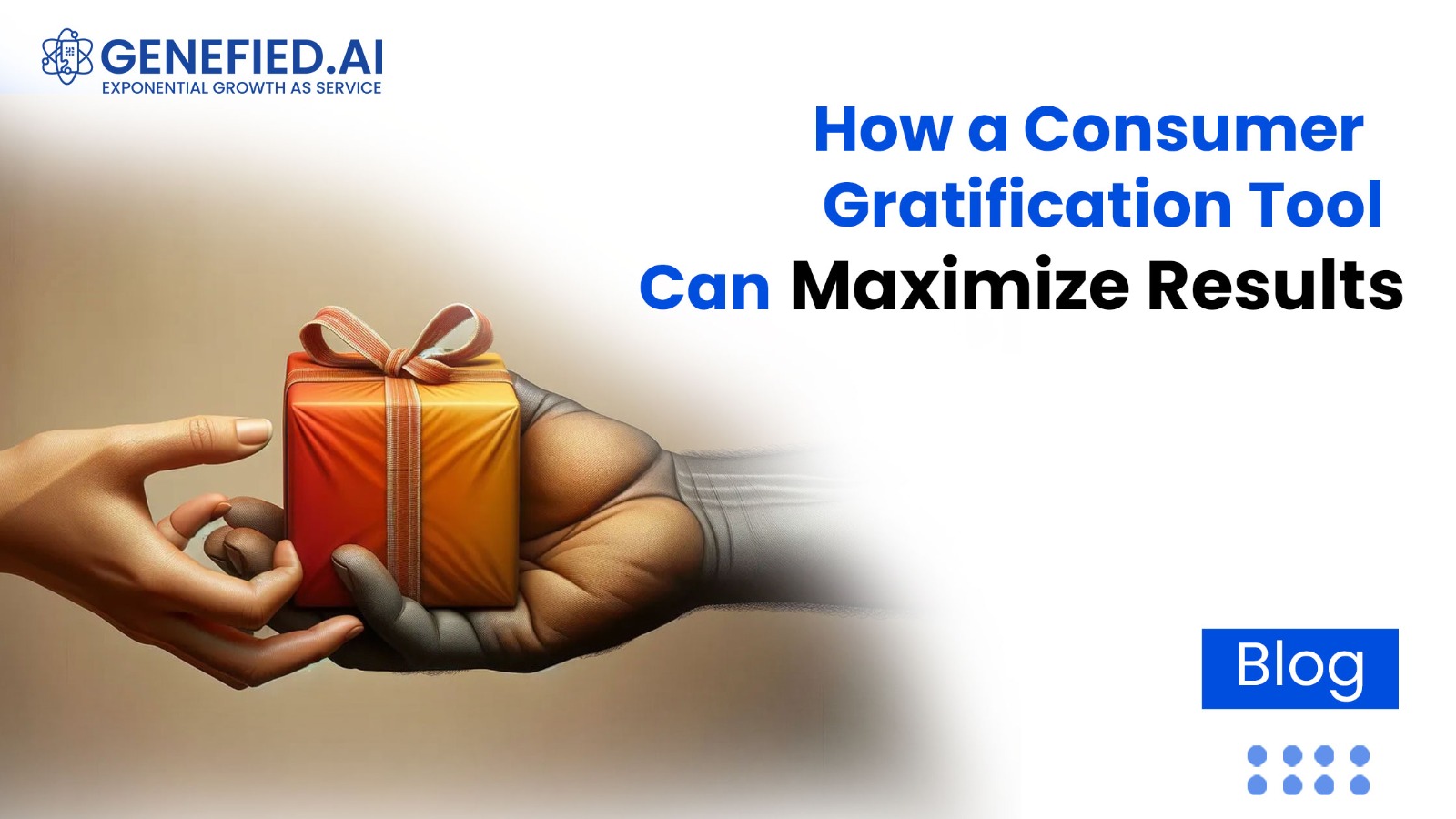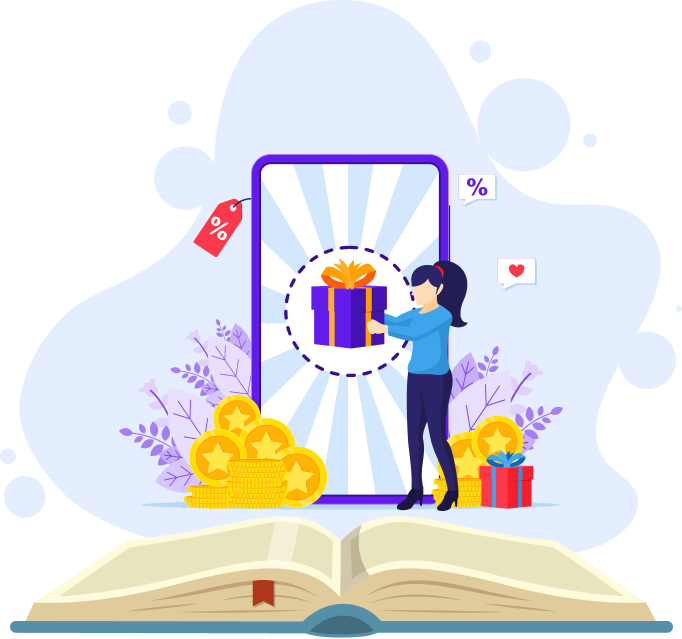Genefied helps Enterprise Brands capture 1st party data to further get insights, retarget and build lookalike audiences.

In a market where consumer attention is fleeting and competition is fierce, how can brands foster unwavering loyalty?
The answer lies in one of the most powerful tools at a brand’s disposal—consumer gratification. But it's not enough to simply hand out rewards, today’s consumers demand more. They seek personalized, meaningful experiences that go beyond discounts and perks.
The question brands need to ask themselves is: Are we truly engaging consumers in a way that builds long-term loyalty, or are we merely offering transactional rewards?
A well-crafted consumer gratification tool can be a game-changer, turning one-time buyers into loyal advocates. Let’s explore the key elements that can transform your strategy from simply rewarding customers to truly engaging them in a way that drives sustained brand success.
At the core of every effective loyalty strategy is the understanding of human behavior. People are hardwired to respond to positive reinforcement, a concept rooted in behavioral psychology. B.F. Skinner, a leading figure in the field, once remarked, “The way positive reinforcement is carried out is more important than the amount.” In essence, the how of rewards matters more than the what.
In today's consumer-driven world, gratification tools tap into this natural desire for recognition, reward, and emotional satisfaction. When consumers feel truly valued, they don’t just return—they become your brand’s biggest champions. A well-designed gratification tool harnesses this psychological insight to build a continuous cycle of loyalty, amplifying your brand's reach and resonance.
A winning consumer gratification tool is much more than a simple discount or loyalty program—it’s about delivering an experience that resonates personally with each individual consumer. Here’s how to create a tool that maximizes engagement and delivers real results:
In today’s marketplace, one-size-fits-all approaches are a thing of the past. Consumers expect brands to know them, understand their preferences, and tailor rewards accordingly. When a reward feels custom-made, it creates a deeper connection. Personalization is no longer just a competitive advantage, it’s a necessity.
Scan&Win empowered Bikaji Khao, London Jao campaign is a prime example of a successful consumer gratification strategy. By pinpointing the gap in personalization, they crafted a campaign that resonated deeply with their audience. The result?
A surge in consumer satisfaction, increased revenue, and enhanced brand likability. This personalized approach met consumer needs and positioned Bikaji as a standout brand in the competitive market.
In the age of quick commerce, brands are stepping up and providing consumers with not just instant delivery but instant gratification. A successful gratification tool must mirror this demand for instant rewards. Whether it’s real-time points, immediate discounts, or surprise gifts based on behavior, offering instant gratification keeps consumers engaged and satisfied. Delayed rewards can quickly diminish enthusiasm, while instant rewards create a sense of accomplishment that keeps customers coming back.
While tangible rewards are important, emotional connection is what solidifies long-term loyalty. A well-designed gratification tool doesn’t just offer material benefits, it creates experiences that evoke positive emotions. Whether it’s the joy of receiving an exclusive reward or the pride of being recognized for loyalty, these emotional triggers make consumers feel valued and connected.
Introducing elements of gamification—such as earning points, leveling up, or unlocking exclusive rewards—can significantly boost engagement. Consumers are naturally competitive, and when your tool turns loyalty into a game, they’re more likely to participate enthusiastically.
Gamification not only increases interaction but also adds an element of fun and excitement to the consumer experience. Brands like Nike have perfected this strategy, incorporating game-like mechanics into their loyalty programs, fostering stronger connections and brand loyalty.
No consumer gratification tool should be static. It should evolve and adapt, shaped by insights gathered from consumer data. By analyzing consumer behavior, preferences, and engagement patterns, brands can continuously refine and enhance their reward offerings.
Data-driven decision-making ensures that your tool remains relevant, impactful, and always optimized for maximum consumer engagement. Whether it’s determining which rewards resonate most or identifying patterns in consumer behavior, leveraging data is critical to maintaining a high-performing tool.
Brands like Bikaji and Lotus Herbals have redefined consumer gratification by embedding it into the very core of their business models. Bikaji’s ecosystem of rewards—through seamless reward redemption. Lotus Herbal utilizes the Indian Premier League to cater to the consumers. These brands have demonstrated that when done right, consumer gratification tools can transcend the traditional and become integral to a brand’s long-term success strategy.
In a crowded market, a well-designed consumer gratification tool can set your brand apart, turning everyday consumers into long-term advocates. By focusing on personalization, simplicity, instant rewards, and emotional engagement, your brand can foster deeper connections and drive sustained loyalty.
The future of consumer loyalty lies in how well you can engage your customers—not just through transactional rewards, but through meaningful, lasting experiences.
Now is the time to invest in a robust, well-crafted consumer gratification tool to make consumer loyal!


Copyright 2025 Genefied Brand Protection Solutions Pvt. Ltd. All Right Reserved